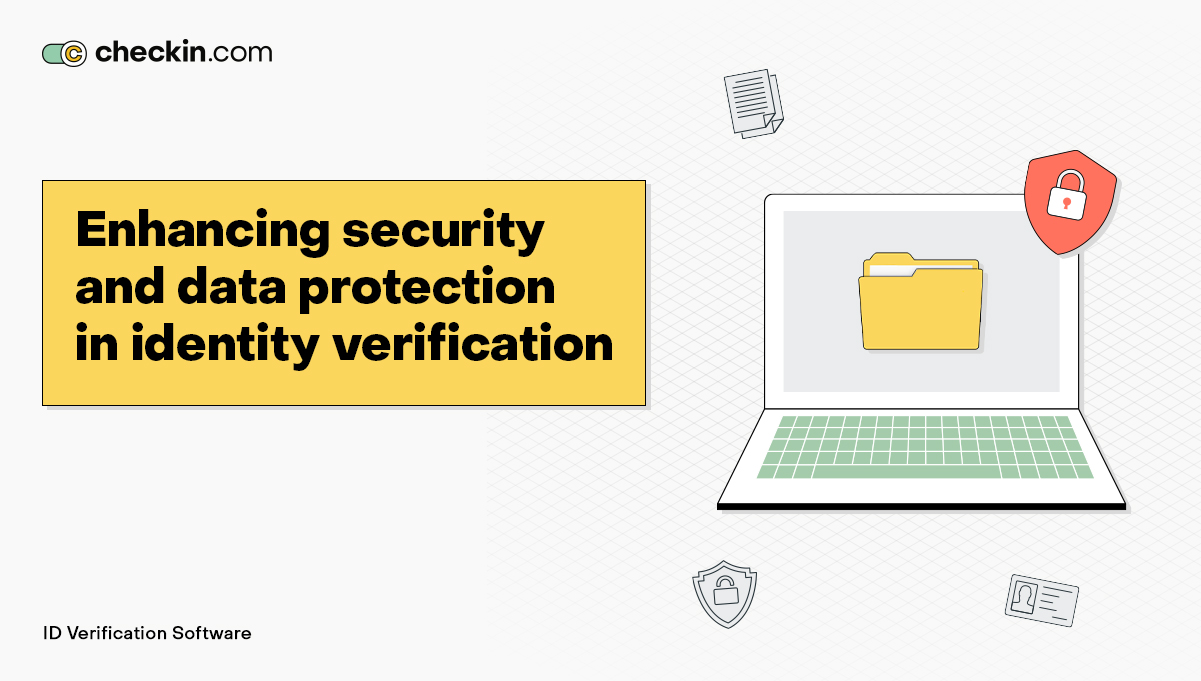
Enhancing Security and Data Protection in Identity Verification Services
9 Jun 2023
In our increasingly digital world, security and data protection have become paramount for identity verification service providers. With the rise of data breaches and identity theft, it is crucial for providers to prioritize robust security measures to ensure the safety of sensitive information.
This comprehensive guide explores the significance of security and data protection in id verification services and provides strategies to mitigate the risks associated with data breaches and identity theft.
The Growing Threat of Data Breaches and Identity Theft
Understanding Data Breaches
- Data breaches compromise the security and privacy of individuals by allowing unauthorized access to sensitive information.
- They can result in financial loss, reputational damage, and even lead to identity theft.
- Identity verification service providers must implement robust security measures to prevent unauthorized access to customer data.
The Impact of Identity Theft
- Identity theft involves the fraudulent use of personal information, causing financial ruin and emotional distress for victims.
- It highlights the urgent need for identity verification service providers to enhance security protocols and protect customer data.
Ensuring Security in Identity Verification Services
Implementing Advanced Encryption Techniques
- Strong encryption algorithms must be employed to protect sensitive data during transit and storage.
- Encryption ensures that even if data is intercepted, it remains incomprehensible and unusable.
Multi-Factor Authentication for Enhanced Security
- Multi-factor authentication adds an extra layer of security by requiring multiple pieces of evidence to prove identity.
- It significantly reduces the risk of unauthorized access, ensuring only legitimate individuals can access sensitive data.
Proactive Measures for Data Protection
Regular Security Audits and Vulnerability Assessments
- Regular security audits and vulnerability assessments identify weaknesses in systems and allow for proactive measures to strengthen security.
- They minimize the risk of data breaches and enhance overall data protection.
Staff Training and Awareness Programs
- Comprehensive training programs educate employees on security best practices, data protection protocols, and the importance of safeguarding customer information.
- Staff training programs create a culture of security awareness, empowering employees to prevent security breaches.
Compliance with Regulatory Standards
Understanding Regulatory Requirements
Identity verification service providers must comply with various regulatory standards, such as GDPR, KYC, and AML laws. These regulations aim to protect personal data, prevent fraud, and ensure the security and integrity of identity verification processes.
Implementing Compliance Measures
Providers need to establish robust compliance frameworks that align with regulatory requirements. This includes implementing necessary controls, conducting regular audits, and keeping up with changes in regulations to maintain compliance.
Building Trust and Customer Confidence
Transparency and Accountability
Identity verification service providers need to be transparent about their data handling practices and security measures. Demonstrating accountability through clear privacy policies and effective communication helps build trust with customers.
Proactive Customer Support
Offering responsive and helpful customer support shows commitment to data protection and security. Promptly addressing customer concerns and providing assistance in navigating security features enhance customer confidence in the service.
Conclusion
Security and data protection are of utmost importance for identity verification service providers in a world plagued by data breaches and identity theft. By prioritizing robust security measures, implementing advanced encryption techniques, employing multi-factor authentication, conducting regular security audits, and investing in staff training programs, providers can safeguard sensitive customer information.
Protecting against unauthorized access and ensuring the privacy of customer data builds trust with clients and mitigates the risks associated with data breaches and identity theft. By staying vigilant and proactive in implementing security measures, identity verification service providers can navigate the digital landscape with confidence, providing secure and reliable services to their customers.
FAQ
Why is security important for identity verification service providers?
Security is vital to protect sensitive customer information, prevent data breaches, and combat identity theft.
How can identity verification service providers enhance security measures?
Providers can implement advanced encryption techniques, utilize multi-factor authentication, conduct regular security audits, and invest in staff training and awareness programs.
What are the risks associated with data breaches and identity theft?
Data breaches can lead to financial loss, reputational damage, and compromised privacy. Identity theft can result in financial ruin and emotional distress for victims.
How do regulations like GDPR, KYC, and AML laws impact identity verification service providers?
These regulations set guidelines for protecting personal data, combatting fraud, and ensuring the integrity of identity verification processes. Providers must comply with these standards to maintain legal and ethical practices.
What steps can identity verification service providers take to build customer trust?
Providers can enhance trust by being transparent about their data handling practices, demonstrating accountability, and providing proactive customer support to address any security concerns.